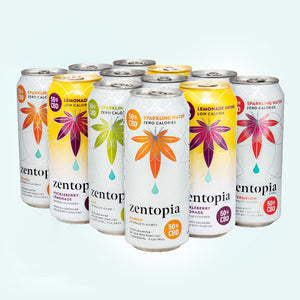Understanding COAs: The Crucial Role of Certificates of Analysis in Ensuring Food and Drink Safety
In the ever-evolving landscape of food and drink products, consumer safety is paramount. Certificates of Analysis (COAs) play a pivotal role in holding manufacturers accountable by providing essential information about the quality and safety of the items we consume.
What Are Certificates of Analysis (COAs)?
Certificates of Analysis are official documents provided by quality assurance and testing laboratories. These certificates offer a detailed analysis of the composition and quality of a particular product, confirming that it meets specific standards and regulations. COAs are commonly associated with food and drink products, dietary supplements, pharmaceuticals and other consumer goods.
Key Components of a COA
Product Identification
- Name of the product and batch or lot number.
- Date of manufacture and expiration, ensuring consumers receive products within their shelf life.
Chemical Composition
- Detailed breakdown of the chemical composition, including active ingredients and potential contaminants.
- Concentrations of key components, ensuring the product meets regulatory standards.
Microbial Analysis
- Presence and levels of microorganisms, bacteria, molds and yeast, ensuring the product is free from harmful pathogens.
Heavy Metal Content
- Analysis of heavy metal levels (such as lead, mercury and cadmium) to confirm compliance with safety regulations.
Allergen Information
- Declaration of allergens present in the product, which is vital for consumers with allergies or sensitivities.
Purity and Potency
- Confirmation of the product's purity and potency, assuring consumers that they are receiving what is stated on the label.
Why COAs Are Essential for Food and Drink Products
Consumer Safety
- The primary purpose of COAs is to safeguard consumer health. By providing a comprehensive analysis of the product's composition, COAs empower consumers to make informed choices about the items they consume.
Regulatory Compliance
- COAs are instrumental in ensuring that food and drink products comply with local and international regulations. This is particularly crucial in an era of globalized supply chains where products may traverse various jurisdictions.
Quality Assurance
- For manufacturers, COAs serve as a tool for quality assurance. Regular testing and analysis help maintain consistent product quality, preventing deviations from established standards.
Transparency and Trust
- Providing COAs demonstrates transparency on the part of manufacturers. When consumers have access to detailed information about the safety and composition of a product, it fosters trust in the brand.
Risk Mitigation
- COAs help identify potential risks associated with a product, such as the presence of contaminants or allergens. This allows manufacturers to address these issues proactively, reducing the likelihood of product recalls or legal repercussions.
Product Consistency
- COAs contribute to maintaining product consistency. By ensuring that each batch meets the specified standards, manufacturers can deliver a uniform and reliable product to consumers.
Legal Compliance
- Many jurisdictions have strict regulations governing the safety and labeling of food and drink products. COAs provide a crucial mechanism for demonstrating compliance with these legal requirements.
Industry Accountability
- The use of COAs contributes to accountability within the food and beverage industry. It encourages manufacturers to adhere to best practices, as they know that their products will undergo scrutiny and analysis.
Challenges and Considerations
Supply Chain Complexity
- In a globalized market, food and drink products often have complex supply chains. Ensuring that each component meets the required standards can be challenging, requiring collaboration and transparency across the supply network.
Testing Variability
- The accuracy and reliability of COAs depend on the proficiency of testing laboratories. Variability in testing methods and equipment can lead to discrepancies in results. Standardization and accreditation of testing procedures are crucial to address this challenge.
Cost Implications
- Comprehensive testing can be resource-intensive, leading to increased production costs. However, the long-term benefits in terms of consumer trust, regulatory compliance and risk mitigation often outweigh these initial expenses.
Purchase Our CBD-Infused Beverages With Published COAs
When it comes to food and drink products, Certificates of Analysis stand as guardians of consumer safety and product integrity. From confirming regulatory compliance to providing transparency and building trust, COAs are indispensable tools for both manufacturers and consumers.
Longing for a delightful and rejuvenating CBD journey? At Zentopia, you can immerse yourself in our varied selection of our good-for-you, feel-good CBD-infused beverages, which all come with published COAs for your peace of mind.
Contact us today at (503) 869-7259 or find our products in select stores in Oregon, Washington, California, Colorado, Idaho, Alaska and Montana.










